第6章
The Rabid Watchdogs of Liberty Not content with these rancorous abuses of the existing law, the war maniacs made a frantic rush to abolish all constitutional guarantees of liberty and well-being. The ordinary law was superseded by Acts under which newspapers were seized and their printing machinery destroyed by simple police raids a la Russe, and persons arrested and shot without any pretence of trial by jury or publicity of procedure or evidence. Though it was urgently necessary that production should be increased by the most scientific organization and economy of labor, and though no fact was better established than that excessive duration and intensity of toil reduces production heavily instead of increasing it, the factory laws were suspended, and men and women recklessly over-worked until the loss of their efficiency became too glaring to be ignored. Remonstrances and warnings were met either with an accusation of pro-Germanism or the formula, "Remember that we are at war now." I have said that men assumed that war had reversed the order of nature, and that all was lost unless we did the exact opposite of everything we had found necessary and beneficial in peace. But the truth was worse than that. The war did not change men's minds in any such impossible way. What really happened was that the impact of physical death and destruction, the one reality that every fool can understand, tore off the masks of education, art, science and religion from our ignorance and barbarism, and left us glorying grotesquely in the licence suddenly accorded to our vilest passions and most abject terrors. Ever since Thucydides wrote his history, it has been on record that when the angel of death sounds his trumpet the pretences of civilization are blown from men's heads into the mud like hats in a gust of wind. But when this scripture was fulfilled among us, the shock was not the less appalling because a few students of Greek history were not surprised by it. Indeed these students threw themselves into the orgy as shamelessly as the illiterate. The Christian priest, joining in the war dance without even throwing off his cassock first, and the respectable school governor expelling the German professor with insult and bodily violence, and declaring that no English child should ever again be taught the language of Luther and Goethe, were kept in countenance by the most impudent repudiations of every decency of civilization and every lesson of political experience on the part of the very persons who, as university professors, historians, philosophers, and men of science, were the accredited custodians of culture. It was crudely natural, and perhaps necessary for recruiting purposes, that German militarism and German dynastic ambition should be painted by journalists and recruiters in black and red as European dangers (as in fact they are), leaving it to be inferred that our own militarism and our own political constitution are millennially democratic (which they certainly are not); but when it came to frantic denunciations of German chemistry, German biology, German poetry, German music, German literature, German philosophy, and even German engineering, as malignant abominations standing towards British and French chemistry and so forth in the relation of heaven to hell, it was clear that the utterers of such barbarous ravings had never really understood or cared for the arts and sciences they professed and were profaning, and were only the appallingly degenerate descendants of the men of the seventeenth and eighteenth centuries who, recognizing no national frontiers in the great realm of the human mind, kept the European comity of that realm loftily and even ostentatiously above the rancors of the battle-field. Tearing the Garter from the Kaiser's leg, striking the German dukes from the roll of our peerage, changing the King's illustrious and historically appropriate surname (for the war was the old war of Guelph against Ghibelline, with the Kaiser as Arch-Ghibelline) to that of a traditionless locality.
One felt that the figure of St. George and the Dragon on our coinage should be replaced by that of the soldier driving his spear through Archimedes. But by that time there was no coinage:
only paper money in which ten shillings called itself a pound as confidently as the people who were disgracing their country called themselves patriots.
The Sufferings of the Sane The mental distress of living amid the obscene din of all these carmagnoles and corobberies was not the only burden that lay on sane people during the war. There was also the emotional strain, complicated by the offended economic sense, produced by the casualty lists. The stupid, the selfish, the narrow-minded, the callous and unimaginative were spared a great deal. "Blood and destruction shall be so in use that mothers shall but smile when they behold their infantes quartered by the hands of war," was a Shakespearean prophecy that very nearly came true; for when nearly every house had a slaughtered son to mourn, we should all have gone quite out of our senses if we had taken our own and our friend's bereavements at their peace value. It became necessary to give them a false value; to proclaim the young life worthily and gloriously sacrificed to redeem the liberty of mankind, instead of to expiate the heedlessness and folly of their fathers, and expiate it in vain. We had even to assume that the parents and not the children had made the sacrifice, until at last the comic papers were driven to satirize fat old men, sitting comfortably in club chairs, and boasting of the sons they had "given" to their country.